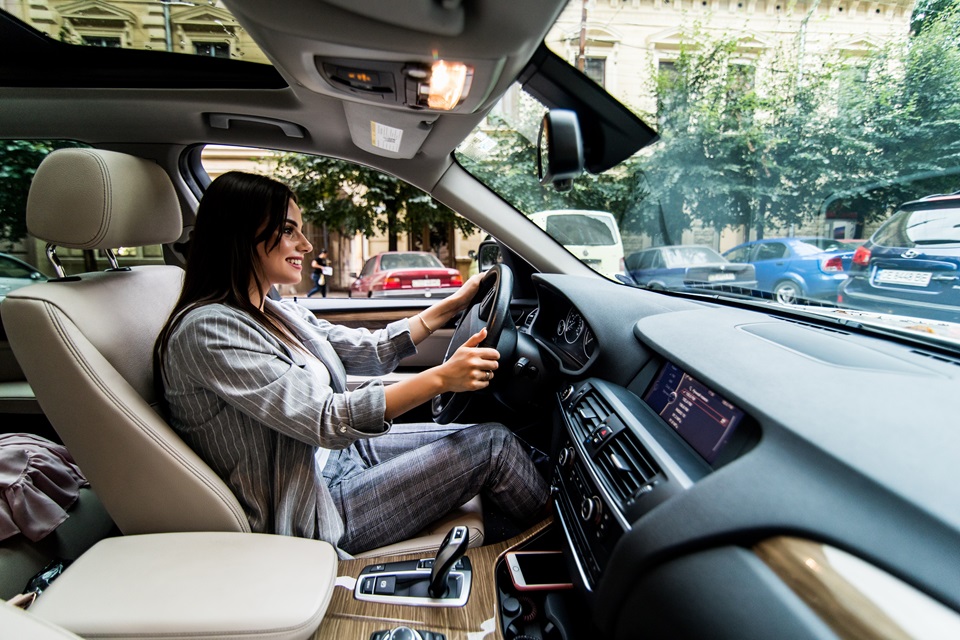According to Gitnux, self-driving or autonomous cars carry the potential to reduce accident-related fatalities by up to 90%. Plus, 95% of car crashes happen due to human negligence the self-driving cars have entered the market to diminish. The self-driving vehicle proves its safety through multiple ways that you will read in the blog.
Table of Contents
What Are Self-Driving Cars?
After reading the above statistics, you must be intrigued to know what self-driving cars are.
The self-driving cars use the road without any human involvement but with the help of range finders, cameras, radar equipment, ultrasound sensors, and 3D light detection and ranging technology to save the driver from getting stuck in any possible danger on the road. That’s why companies are also approaching investing in these cars because they’re safer.
Self-Driving Cars: How Safe Are They?
Recent studies have reported that self-driving cars are safer than human-driven cars in the following ways:
Reduction Of Car Accidents
Self-driven vehicles prove to be a game-changer in situations where there’s a lot of traffic and you want to avoid unnecessary braking and acceleration. The numerous sensor systems built in the self-driven car will lead to a reduction in car accidents.
Previously, we witnessed many high-profile cases where human-driven cars were allegedly involved in accidents that caused severe damage to other people’s lives and property. The National Highway Traffic and Safety Administration revealed that individuals driving at full speed, using mobile phones while driving and under alcoholic influence are some of the prominent factors of car accidents. Other reasons are miscalculation and errors in judging the route and distance.
When self-driving cars step on the road, there would be a lesser scope of human or driver error. Cases involving speeding, distracted driving, driving under the influence, and other forms of driver errors have been handled by Pittsburgh car accident lawyers as leading causes of accidents on the road. Imagine a road where cyclists, pedestrians, and drivers are driving and crossing the road without the fear of getting hit by any vehicle because the major target of self-driving cars is to reduce the number of accidents.
Parking Won’t Be A Hassle Anymore
Doesn’t finding a good parking space to fit your car becomes a laborious task at times? The citizens of small cities with congested spaces may relate to the question. It’s annoying to try and fit your car between limited spaces, let alone parallel parking.
Guess who heard your call? The self-driving cars did. Autonomous transport has an edge to drop you off at your destination and move on. Self-driving cars can also make parking more accessible for individuals like the elderly or people with disabilities.
Apart from this, the substantial parking spaces can be utilised for productive projects like building a housing society or revamping the land into an attractive public space. Nice thought, right?
Reasons Why Self-Driving Cars Might Not Be Safe
As much as the concept of self-driving cars sounds comfortable, the vehicle still emerges with a few disadvantages that will make it unsafe to use:
Reliability At Risk
Despite knowing that self-driving cars are there to eradicate human-driven cars, one of the flaws seen in the latest technology is reliability. Unknowingly the human brain has the skill to make decisions at the last moment, like the case of avoiding an accident. Therefore, self-driving cars may make incorrect assumptions about the environment being operated in.
Not Secured
The self-driving cars are technology-driven cars that use several sensors to ensure a smooth journey, but unfortunately, there is software involved too that is exposed to hacking. This loophole can lead to car theft and the hackers can also take control of the car while the original driver is driving and hit another person or object.
The advancements of self-driving cars have created a dream come true for drivers who want to kick back, relax and let the car handle the cruising. However, keep in mind that the safety risks and ethics surrounding autonomous cars is still a dilemma.



